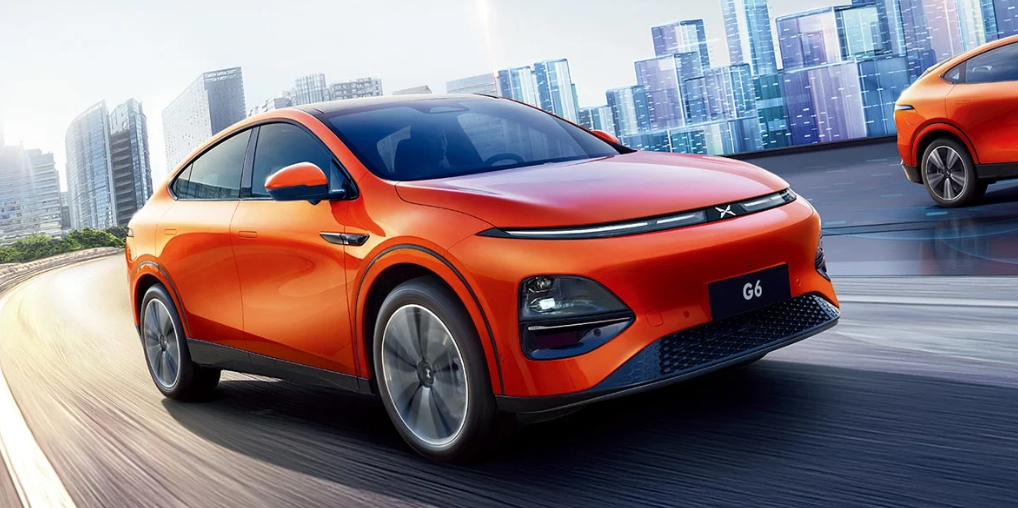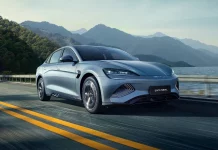Volkswagen disclosed the details of the ambitious partnership with XPeng Motors and SAIC Motor Corporation, aimed at solidifying Volkswagen’s presence in the dynamic Chinese electric vehicle (EV) market. The announcement was made at the Munich Motor Show.
This groundbreaking collaboration is set to introduce a novel three-row, seven-seater SUV model named ‘ID.8’ into the automotive landscape. Anticipated to make its debut around 2026, the ID.8 will share a platform with XPeng’s G9 model, marking a significant stride as one of the pioneer “co-developed” vehicles to enter the domestic market. This launch is expected to supplant the existing Tiguan fuel version in China.
The initial impressions of the ID.8, drawn from concept designs, reveal a seamless fusion of integrated LED daytime running lights that gracefully merge into LED headlights on the front fascia, with a refined lower grille sporting an elegant smoked black mesh design.

Beneath the surface, the ID.8 is poised to provide consumers with a diverse array of choices, including single-motor and dual-motor variants, with the potential for selecting between lithium iron phosphate and ternary lithium battery packs. The cutting-edge EV is estimated to deliver an impressive maximum range of up to 700 kilometers. Furthermore, it may incorporate XPeng’s dual-chamber air suspension system and an intelligent assisted driving system, along with dual-laser radar and dual Orin X chips.
This strategic alliance between Volkswagen and XPeng has the potential to set a precedent for Western automakers seeking to harness Chinese EV expertise, while their Chinese counterparts can leverage global distribution networks.
The collaboration encompasses the production of two fresh battery-powered Volkswagen models, leveraging essential XPeng technologies such as vehicle-to-anything (V2X) and XNGP solutions, an advanced ADAS system comparable to Tesla’s FSD, and an innovative battery chassis architecture.
Despite XPeng’s smaller market share compared to industry giants like Tesla and local powerhouse BYD, it has garnered accolades for its unwavering commitment to advanced technologies and proprietary autonomous vehicle development. Volkswagen’s acquisition of a 5% stake in XPeng not only provides access to autonomous vehicle expertise but also unlocks XPeng’s battery and smart cabin technology.
For XPeng, this partnership offers a gateway to a more extensive customer base, as Volkswagen’s local joint ventures secured an impressive 15% share of China’s retail auto market last year. This collaboration is poised to propel the scaling of XPeng’s AV systems, enhance data collection, and refine algorithms, following a model akin to Tesla’s data feedback loop, contingent upon the success of the new models.
Simultaneously, the partnership holds the potential to elevate Volkswagen’s standing in China’s EV market, where it secured a modest 3% share of the new energy vehicle market in the preceding year. Furthermore, this strategic alignment could facilitate XPeng’s international expansion aspirations.
Related:
- Volkswagen partners with XPENG to expand its presence in China with 2 new EVs
- XPeng Motors Sets Sights on European Expansion in 2024
- Tesla Takes Xiaomi-Owned Chinese Firm to Court for Alleged Theft of EV Tech Secrets
(via)







